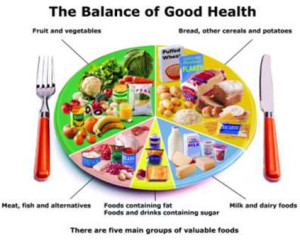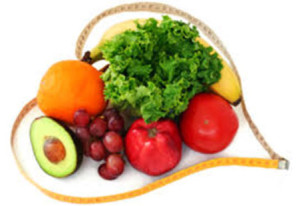Health Tips
Most of us are creatures of habit say’s Zayboonisha Mia. We buy the same foods from the same grocery store, prepare the same recipes over and over, and live within our own familiar routines. But if you’re serious about eating healthier and losing weight, you need to shake it up, change those bad eating habits, and start thinking differently about your diet and lifestyle.
Eating a healthier diet may be intimidating at first. But once you see for yourself how good it makes you feel — and how good healthy food can taste — you have a better chance of succeeding. Over time, your preferences will change and cravings for bad-for-you foods will fade away.
How Many Carbs per Day?
This will vary between individual as many people feel best eating very little carbs (under 50 grams) while others eat as much as 150 grams, which is still low-carbs.
You can use these numbers as a guideline:
- 10-20 grams per day: Very low, can’t eat any carbs except low-carb vegetables. Appropriate if you have a lot of weight to lose or if you have diabetes and/or the metabolic syndrome.
- 20-50 grams per day: If you need to lose weight fast. You can eat quite a bit of vegetables and one piece of fruit per day.
- 50-150 grams per day: If you want to achieve optimal health and lower your risk of lifestyle-related disease. There is room for several fruit per day and even a little bit of healthy starches like potatoes and rice.
An explanation of terminology when it comes to: What Does “Low-Carb, Real-Food” Mean?
- A low-carbohydrate diet minimizes sugars and starches, replacing them with foods rich in protein and healthy fats.
- “Real food” means choosing foods that humans had access to throughout evolution. Processed, unnatural foods with artificial chemicals are avoided.
LCRF is not a “diet.” It is a way of eating, a lifestyle change based on bulletproof scientific evidence.
It is a way of eating that emphasizes the foods humans have evolved to eat for hundreds of thousands of years, before the agricultural and industrial revolutions.
This type of diet is proven to work better than the low-fat diet still recommended all around the world.
Use this information and combine it with this mantra: “you can’t outrun your fork“. When trying to lose weight, feel healthy, and get in shape, 80% (not an exaggeration) of your success or failure will come from how well you eat – which is why this point is one of the cornerstones of the Rebellion.
What Not to Eat
Limit the following foods:
- Sugar: Added sugar is addictive, fattening and a leading cause of diseases like obesity, diabetes and cardiovascular disease.
- Grains: Avoid grains if you need to lose weight, including bread and pasta. Gluten grains (wheat, spelt, barley and rye) are the worst. Healthier grains like rice and oats are fine if you don’t need to lose weight.
- Seed- And Vegetable Oils: Soybean oil, corn oil and some others. These are processed fats with a high amount of Omega-6 fatty acids, which are harmful in excess.
- Trans Fats: Chemically modified fats that are extremely bad for health. Found in some processed foods.
- Artificial Sweeteners: Despite being calorie free, observational studies show a correlation with obesity and related diseases. If you must use sweeteners, choose Stevia.
- “Diet” and “Low-Fat” Products: Most of these “health foods” aren’t healthy at all. They tend to be highly processed and loaded with sugar or artificial sweeteners. Agave syrup is just as bad as sugar.
- Highly Processed Foods: Foods that are highly processed are usually low in nutrients and high in unhealthy and unnatural chemicals.
Always read ingredient lists. You’ll be surprised at the amount of “health foods” that can contain sugar, wheat and other harmful ingredients.
Healthy Foods to Eat
You should eat natural, unprocessed foods that humans are genetically adapted to eating. Research shows that such foods are great for health. For healthy people who exercise and don’t need to lose weight, there is absolutely no proven reason to avoid potatoes and sweet potatoes, or healthier non-gluten grains like oats and rice. If you are overweight or have metabolic issues (low HDL, high LDL cholesterol, triglycerides, belly fat, etc.) you should restrict all high-carb foods.
- Meat: Beef, lamb, pork, chicken, etc. Humans have eaten meat for hundreds of thousands of years. Unprocessed meat is good for you, especially if the animals ate natural foods (like beef from grass-fed cows).
- Fish: Fish is great. Very healthy, fulfilling and rich in omega-3 fatty acids and other nutrients. You should eat fish (preferably fatty fish like salmon) every week.
- Eggs: Eggs are among the most nutritious foods on the planet. The yolk is the most nutritious and healthiest part. Omega-3 eggs are best.
- Vegetables: Contain fibre and many nutrients that are essential for the human body. Eat vegetables every day.
- Fruit: Increase variety, taste good, are easy to prepare and rich in fibre and vitamin C. They’re still pretty high in sugar, so eat in moderation if you need to lose weight.
- Nuts and Seeds: Almonds, walnuts, sunflower seeds, etc. Rich in various nutrients, but very high in calories. Eat in moderation if you need to lose weight.
- Potatoes: Root vegetables like potatoes and sweet potatoes are healthy, but they’re still high in carbs. Eat in moderation if you need to lose weight.
- High-Fat Dairy: Cheese, cream, butter, full-fat yogurt, etc. Rich in healthy fats and calcium. Dairy from grass-fed cows will be rich in vitamin K2, which is very important for health.
- Fats and Oils: Olive oil, butter, lard, etc. Choose saturated fats for high-heat cooking like pan frying; they are more stable in the heat.
MiaInc
Fashion • Hair • Beauty • Fitness
083 555 2448 | 083 442 3130




